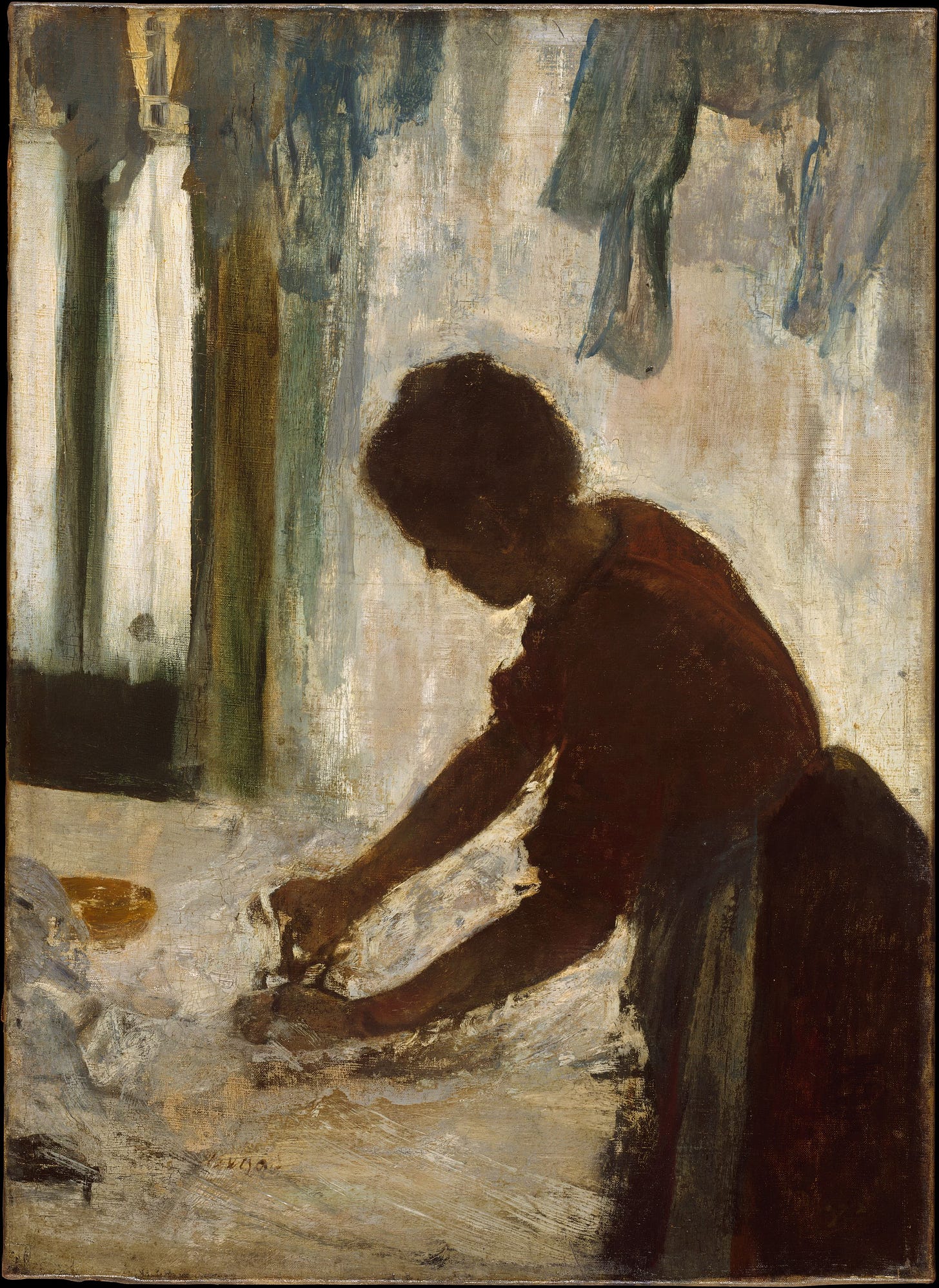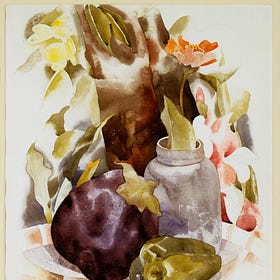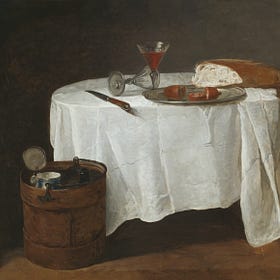Efficiency Is Terribly Overrated
Insights From My Life in Bangkok
I’m about to challenge a concept that occupies an almost hallowed place in Western society, one that promises lower costs, higher profits, streamlined processes, and coveted productivity. Before that, I’ll concede some places where focus on it makes sense.
Lately I seem to hear a lot about efficiency—in business news, in talk coming out of Washington, D.C., and in the international press. The word is usually connected with conversations about work, productivity, and optimization. It is used as a bludgeon, a solution, a threat, and a promise.
The concept of efficiency can be a helpful tool for discovering purpose. When implemented in thoughtful ways, a focus on efficiency can bring about impressive results in a workplace, in piano practice, or in writing. I think that efficiency can be a useful value—but I do not believe it’s necessarily a virtue.
It’s certainly bad theology. At one end, efficiency can justify utilitarianism and viewing people as expendable. Cold, calculated efficiency implies that the worth of souls is measured in productivity rather than in a human’s inherent worth as a creation of a loving God (see Doctrine and Covenants 18:10). Prioritizing efficiency over connection in human and spiritual relationships lacks binding, soul-changing warmth and love.
I realize there are different ways to define efficiency. But I’ve found that far too often, when people bandy about the term “efficiency,” they appear to focus on how to make adjustments (perhaps by throwing money at a problem) in the hope that all friction will disappear and whatever-it-is won’t bother them anymore.
This impulse, however, is counterproductive. Far from being something to eliminate, friction plays an important role in many contexts.
For example, without friction, we would be unable to walk. This has happened to me an embarrassing number of times, but especially when I lived in eastern Ukraine. I would be walking down an icy road, and then suddenly find myself flat on the ground, looking up at the streetlights and the stars. Gravity efficiently and quickly helped me fall to the ground without any friction to guide my feet.
I currently live in Bangkok, which has helped me learn other uses of friction.
During our first weeks here, we realized how easy it could be to live a “frictionless” life, based on our purchasing power in this economy. Labor is cheap here. I can have a meal delivered to our home for under ten dollars. There are people in Bangkok with enough money that they do live “frictionless” lives, without ever having to lift a finger to do laundry, take care of their children, or put on their own jackets.
But I need the edges. I need some friction in my life to help me feel my limits and recognize connection to other people.
One value that provides necessary friction to efficiency’s excesses is sufficiency.
Sufficiency is knowing when you have enough. It is a recognition of limits. In my mind, sufficiency is also tied to gratitude. (For another take on this, I loved Jon Ogden’s thoughts on the virtue of enough.)
Sufficiency is also knowing when you can’t do it on your own. Theologically, I’m drawn to these compelling verses in the Book of Mormon:
And when I had said this, the Lord spake unto me, saying: Fools mock, but they shall mourn; and my grace is sufficient for the meek, that they shall take no advantage of your weakness;
And if men come unto me I will show unto them their weakness. I give unto men weakness that they may be humble; and my grace is sufficient for all men that humble themselves before me; for if they humble themselves before me, and have faith in me, then will I make weak things become strong unto them. (Ether 12:26–27)
Sufficiency reminds me that I can never do it alone. Even as Emerson wrote that to “trust thyself” is the only response to this world, self-reliance has its limits (and, like efficiency, can lead to solipsism). I need connection, even if human connection is sloppy and error-prone, for it reminds me that I am alive and that I am needed and loved.
Connection brings friction, which requires the grace of sufficiency. Some of the most important work we do will be connecting with others—especially working with those who are dependent and vulnerable, such as children. When I center the work I do as a mom more on sufficiency than efficiency, I think less about finding a means to an end, and instead ask, What is necessary in this moment?
It is not efficient to walk to the park (with the sun beating down on us) and have my son stop every two feet to gather sticks he finds on the side of the road. It is not efficient to make a dinner (a dinner you know your toddler enjoys) and then have said dinner over the bib, over the high chair, over the floor—everywhere but in her mouth. It is not efficient to have a sick baby. Sick babies don’t care about your spreadsheets. But they do care about sleeping in clean bedsheets and having someone to put a cool hand against their flushed cheeks.
My children don’t care about efficiency. Not really. And when I try to explain my order of operations to them, they really don’t care at all. Time means something completely different to them than it does to me. In many ways, I am their time. They measure time through me.
So what do my children need in this moment? What is sufficient for them? Usually, what is sufficient is my attention. To notice, to listen, and to love.
We often phrase the work of parenthood as “shaping the next generation.” We try to put a value on this care. But ultimately? There is no appropriate value we can give it. Not because it’s worthless. But rather, because it is worthwhile.
Drawing the line between where efficiency (or sufficiency, or any other value) turns from virtue to vice is not easy. But, to quote a haunting, provocative line from Wendell Berry’s essay, “Feminism, the Body, and the Machine,” if we “are ever again to have a world fit and pleasant for little children, we are surely going to have to draw the line where it is not easily drawn.”
In my mind, recognizing human worth (even, and especially for the “least of these”—or for those unable to give us any benefit or power) and valuing human worth over ambition has to be one of the guiding factors in drawing those lines.
Megan Armknecht is an associate editor for Wayfare. She is a writer and historian currently based out of Bangkok, where she lives with her husband and two children.
Art: A Woman Ironing (1873) by Edgar Degas (1834-1917)
KEEP READING
Civic Love
After years in law and public service, I often find myself haunted by a simple question: What can I do now? I no longer hold office. I don’t have the microphone. But I still feel responsible. I still care deeply about how we live together as communities and as a country. So I find myself circling back to something basic—something spiritual: What if our …
The Night Is Coming On
As I prepared for a four-day cruise a few years ago with my daughters, daughters-in-law, and my mother, I was full of happy anticipation—but I also had headaches, and my stomach was frequently queasy. Both symptoms were familiar. As the date of departure neared, I struggled to accept what I had feared all along: that one of my daughters wasn’t coming. N…
FICTION
Pigs
They had been the only group foolish enough to build a campfire in the canyon park that chilly autumn evening, and Brian kept looking to the sky in fear that the mist of rain would transform into snow, making for a treacherous descent down the winding road they had taken to get there. A nearby creek, bloated by the falling rain, gurgled in the deep dark…








I will give you that Efficiency is not the only virtue we need to cultivate.
You stated one very good reason why we need to cultivate efficiency. "...efficiency can be a helpful tool for discovering purpose." You did an excellent job of challenging efficiency as a virtue and refocusing us on an essential one, valuing the individual.
However, may I suggest a more equitable solution?
First of all, according to Mark 5:30, Luke 6:19, and Luke 8:48, virtue means power. In fact, it means power to bring ease or peace where there is dis-ease.
It is interesting to me that the scriptures and much of our English literature, across the world, refer to many virtues. I think that it would be beneficial to have conversations about the 18 virtues or powers listed in Isaiah 11:3-8, which lists six virtues in 3 parallel lines. Each line defines the virtues in a unique form.
I would love to have those conversations with you.